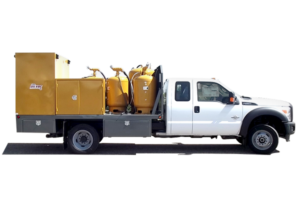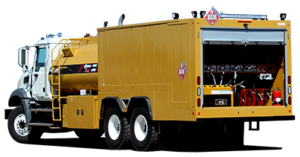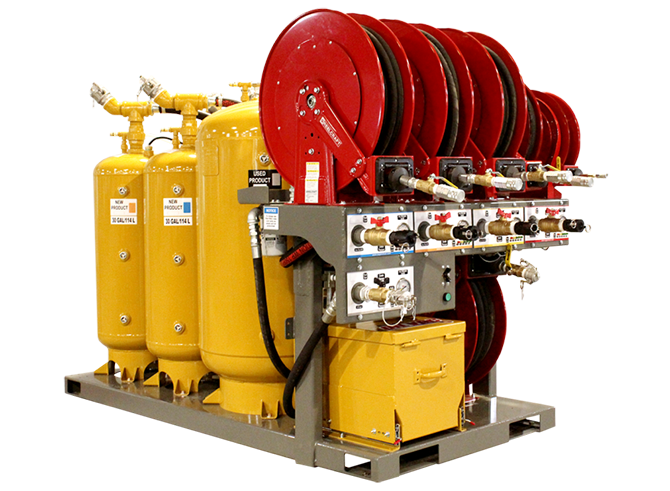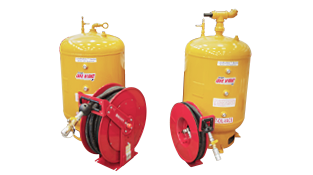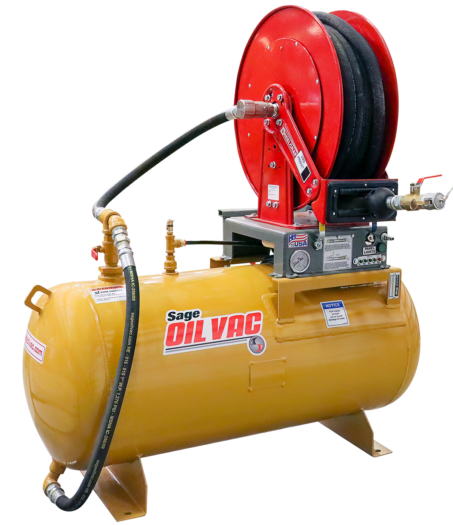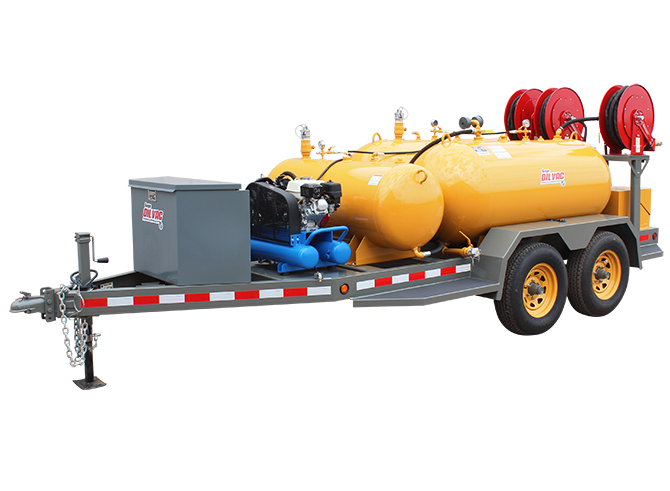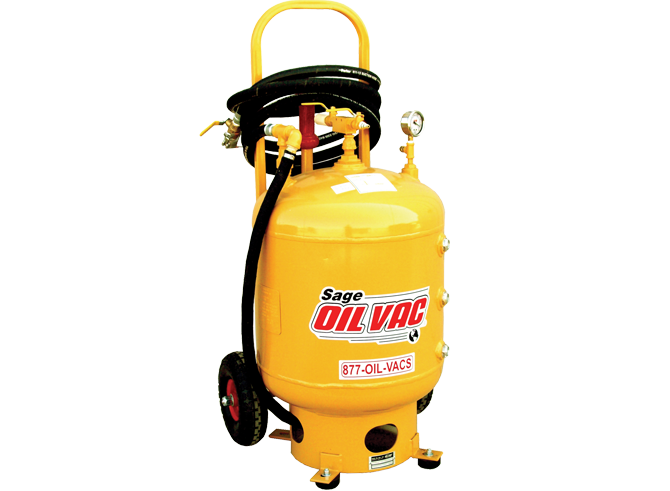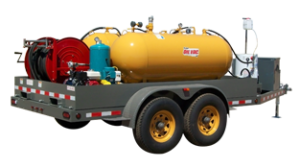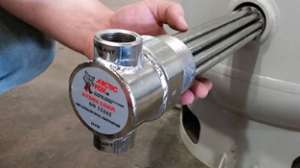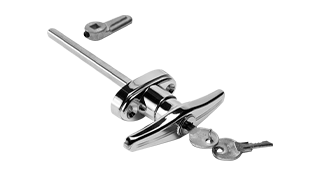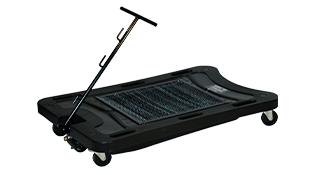Servicing a truck fleet scattered across multiple plant locations presents mindboggling logistical challenges for dedicated shops. So here’s the million-dollar question: Do you bring all the equipment to the shop for preventive maintenance, or do you bring the shop to the equipment with a preventive maintenance trailer?
Maschmeyer Concrete faced this daunting decision with its fleet of trucks distributed across multiple plant locations in Florida. The company’s dedicated service shop locations were a short drive from the plants, but downtime traveling back and forth between the plants and the service shops proved costly. With the company based in the Sunshine State, there is no off season. The trucks stay in constant motion — and downtime equates to lost productivity. Serviced trucks need to be ready for work when the sun rises.
Since 1986, Maschmeyer Concrete has become one of Florida’s leading ready-mix concrete, block and building materials suppliers. This privately held, family-operated business is among only a handful of concrete producers recognized as Silver Premier Producers by the National Ready Mixed Concrete Association. To earn this honor, your company must meet rigid standards in production, quality control, environmental protection and customer service.
By consistently delivering quality products in a safe and timely manner, Maschmeyer Concrete has grown to several locations across the state with ready-mix concrete plants and block plant locations servicing customers throughout the Southeast, Central and Tampa Bay regions of Florida.
This work is carried out with a fleet of ready-mix trucks, heavy-haul trucks that transport the concrete blocks and dump trucks used to deliver sand and reclaim crushed concrete. Preventive maintenance is especially important in the ready-mix business. These trucks carry perishable loads that can harden in the mixing drums, meaning unexpected breakdowns can become a maintenance nightmare.
Rethinking preventive maintenance
Maschmeyer initially chose to bring all its trucks to the dedicated shop for service versus servicing them with a preventive maintenance trailer at the concrete production plant. Here’s how it worked. Truck drivers would transport the trucks from their plant location to the shop when it was time for preventive maintenance. These drivers then contacted a rideshare app for a ride back to their home plant. When service was completed, the driver would need to be transported back to the service shop to pick up the truck.
Think of all the time and money used throughout the process. The diesel consumed by the trucks traveling back and forth to the shop. The driver’s time in transport or waiting for a lift. Not to mention the cost of all those rideshares.
Six years ago, Maschmeyer Concrete made the decision to change course and bring the shop to the equipment. The company initially built its own preventive maintenance trailer, but it came with a few drawbacks. Technicians drained oil into pans, which was then pumped from the oil pans into a 70-gallon waste tank. It was not an ideal setup. The company wanted a turnkey solution that would increase oil change efficiency.
Fleet Maintenance Manager James Salmon realized it was time to find a solution that would better meet the company’s evolving needs. He reached out to Mark Steinberg at ACME Truck Body and purchased a Sage Oil Vac 5120 jobsite trailer. This trailer streamlined preventive maintenance for Maschmeyer Concrete, eliminating waste and increasing truck driver job satisfaction. Transport of drivers and trucks stopped. The company now services the trucks at the plant, meaning the equipment is ready to go the next morning.
The Sage Oil Vac preventive maintenance trailer helps Maschmeyer perform three oil changes per night. The trucks being serviced require 15W-40 diesel engine oil, hydraulic fluid, antifreeze and 85W-140 gear oil. The concrete company needs to carry sufficient quantities of these fluids to prevent trips back to the shop. The 5120 jobsite trailer’s 120-gallon (454.25-L) used oil tank and four 80-gallon (302.83-L) fresh product tanks proved up to the task.
Work never stops. Neither do the trailers.
To maximize jobsite efficiency, Maschmeyer purchased two additional Sage Oil Vac 5120 jobsite trailers to service trucks at its plants. The added trailers help them get maintenance done, whether the trucks are located near Orlando, Tampa Bay or Palm Beach.
The quality and durability of the Sage Oil Vac 5120 jobsite trailers keep the Maschmeyer fleet rolling year-round, which is important since the company never slows down. Over the last six years, the 5120 jobsite trailers have not missed a single day of work. All repairs have been minor, and the trailers have been fixed and operational the same day.
The Sage Oil Vac preventive maintenance trailer fits well with Maschmeyer Concrete’s commitment to safety and protecting the environment. Every Sage Oil Vac lube trailer houses a patented, pump-free, low-maintenance fluid exchange system that protects the operator and the environment. The tanks are not vented to the atmosphere and the risks of spills or exposure are minimized.
Trial and error provides the perfect solution
Maschmeyer tried two approaches to preventive maintenance: bringing the trucks to the shop and bringing the shop to the trucks with a preventive maintenance trailer. The verdict? Sage Oil Vac 5120 jobsite trailers provide the most cost-effective oil changes for the company. Reduced travel time for the drivers, reduced fuel consumption, the elimination of rideshare transport, and most importantly, the trucks are ready to roll at sunrise.
Check out the complete lineup of Sage Oil Vac fuel and lube trailers.
When you have more than 200 pieces of heavy equipment to service on 35 jobsites across the fourth largest U.S. city, efficiency is essential. That’s the challenge Sprint Sand and Clay faces each day as a contractor specializing in dirt work and selling construction materials to contractors and home builders in Greater Houston, Texas. When its lube truck leaves the shop, it may travel two hours one way to a jobsite.
“It’s important that the lube truck has enough storage and fluid capacity to service many pieces of equipment on that side of town before going back and refilling the truck,” said Kyle Cain, president of Sprint Sand and Clay.
Sprint Sand and Clay’s service technician typically performs preventive maintenance on every piece of equipment while the truck is on a jobsite to maximize efficiency.
“In today’s world, you have to be as efficient as possible. We attribute our success a lot to equipment that we use and the innovation that’s provided with that equipment, from our dump trucks to our equipment to our lube trucks,” said Cain.
Expanding the labor pool
Let’s face it, drivers with a CDL are in high demand and difficult to find. Contractors like Sprint Sand and Clay are competing with over-the-road haulers and local businesses. This means these drivers can demand higher compensation. Many don’t want to service equipment, either.
“Trying to find a CDL driver that wants to perform the service, not just take a load from point A to point B all day, is tough,” said Jacob Phillips, vice president of operations at Sprint Sand and Clay.
Without the need for special licensing requirements, almost any technician in your shop can be assigned to run a non-CDL truck.
Non-CDL truck to the rescue
So, when Sprint Sand and Clay knew they needed a solution that would balance capacity with efficiency, they turned to a Sage Oil Vac non-CDL open lube body. The non-CDL bodies are a great fit for heavy equipment preventive maintenance, featuring a 180-gallon (681.37-L) used oil tank and five fresh product tanks that can be configured for any fluids.
“We really believe in the small compact size of a [Sage Oil Vac non-CDL] lube truck. It’s very efficient and the cost of ownership compared to having a larger CDL truck with a CDL driver just makes sense,” said Cain.
The non-CDL truck provided a more cost-effective solution than relying on the local equipment dealer for preventive maintenance.
“I think when you compare what we would have to pay from the dealership versus doing it ourselves, it just really made sense for us,” said Cain.
Despite its small size, the Sage Oil Vac non-CDL open lube body has been up to the task of servicing Sprint Sand and Clay’s 200-machine fleet. It offers the capacity to service all the equipment on up to two jobsites without having to go back to the shop to fill up. Plus, it’s easy to get around in.
“It’s been very easy to maneuver in traffic, especially in Houston,” noted Cain.
Maneuverability coupled with quick connect fittings and exclusive pump-free technology of the Sage Oil Vac system reduces the chance of oil spills.
“A lot of our jobs are on government entity property — cities and counties — so being able to get in and out without having any spillage or environmental issues is very important to us,” said Cain.
Slash operating costs
Competitive mobile lube trucks often require a compressor to run 100% of the time. Sage Oil Vac trucks are different. Once the on-board compressor creates the necessary vacuum for the system, it shuts off. The technician can service an entire machine without turning the compressor on again.
“We don’t depend on the truck idling all day,” said Cain.
The compact size and efficient operation of the non-CDL truck gives Sprint Sand and Clay a cost-effective heavy equipment service option.
“If something happened to our lube truck, we’d be solely dependent on the dealer to come service our equipment. With the markup and cost, it just wouldn’t be efficient for us,” said Cain.
Learn more about the complete range of Sage Oil Vac trucks.

